Tim Sparks
Artist Biography
Tim Sparks has been redefining the acoustic guitar repertoire since he won the National Fingerpicking Championship in 1993 with a ground breaking arrangement of Tchaikovsky’s Nutcracker Suite. Sparks continues to surprise, challenge, and thrill audiences with his diverse repertoire and stunning technique. Equally at home with Country Blues, Jazz or World Music, Sparks’ extraordinary ability has earned him an international reputation as one of the most innovative guitarists working today.
Trained by Segovia protege Jesus Silva, at the North Carolina School of the Arts, Sparks has continued to study classical music throughout his career. His adaptation of Tchaikovsky’s Nutcracker Suite has been cited as a significant contribution to solo guitar literature. For Sparks, it was a labor of love that earned him the National Fingerstyle Guitar Championship in Winfield, Kansas in 1993.
His wide travels inspired his interest in European and Mediterranean styles, particularly the music of the Balkans. Upon his return to Minnesota, Sparks immersed himself in the ethnic music scene, performing on Oud and Saz in Middle Eastern ensembles and playing guitar in Greek, Klezmer, and Sephardic groups. This work culminated in the recording of Sparks’ Balkan Dreams Suite, a remarkable collection of odd-meter guitar arrangements.
Sparks’ work came to the attention of John Zorn, the saxophonist, composer, and curator of Tzadik Records in New York, and thereby led to a new cycle of compositions inspired by traditional Jewish melodies. Neshamah (1999) is a solo effort; Tanz, (2000) which garnered Downbeat Magazine’s highest praise, five stars; and At the Rebbe’s Table (2002). In 2003, Tzadik released Masada Guitars, fea- turing interpretations of John Zorn’s music by Tim, Bill Frisell, and Marc Ribot.
In recent years, Sparks’ musical focus has come full circle, returning to the country blues and classic jazz that served as a springboard for his worldwide guitar explorations. He toured with Dolly Parton in 2005 and recorded Roots, Rags and Blues for Truefire Acoustic Guitar Workshop.
Sparks released Sidewalk Blues on the ToneWood label in February 2009 and recorded Little Princess, his fifth CD for Tzadik, in New York in 2009. Post-Modern Fingerstyle Guitar was released on Truefire in 2011. Sparks released Chasin’ the Boogie, his 10th acoustic guitar recording on May 30, 2014 followed by Jukebox Dreamin’ in December 2018.
Videos



Truefire
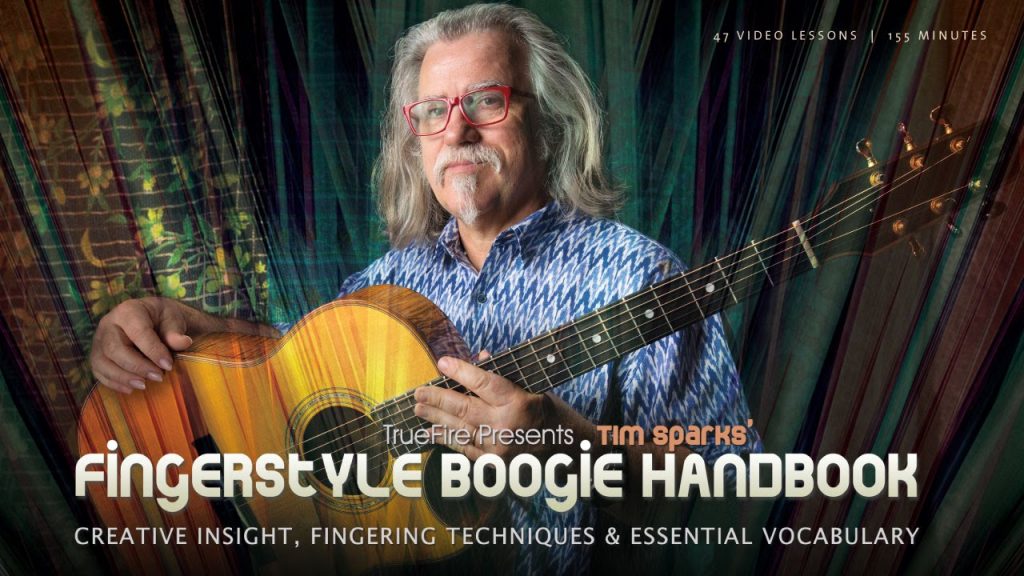
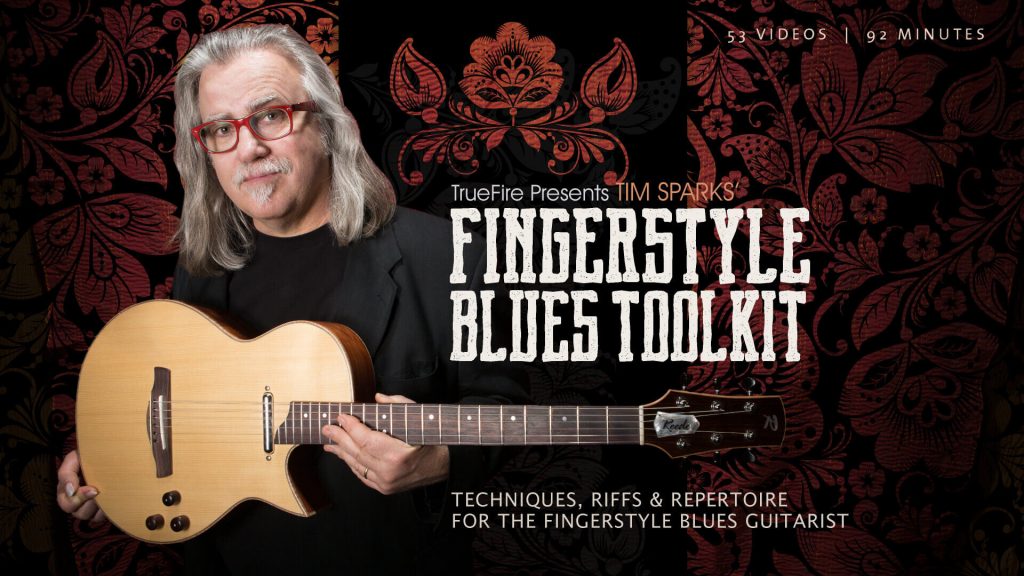
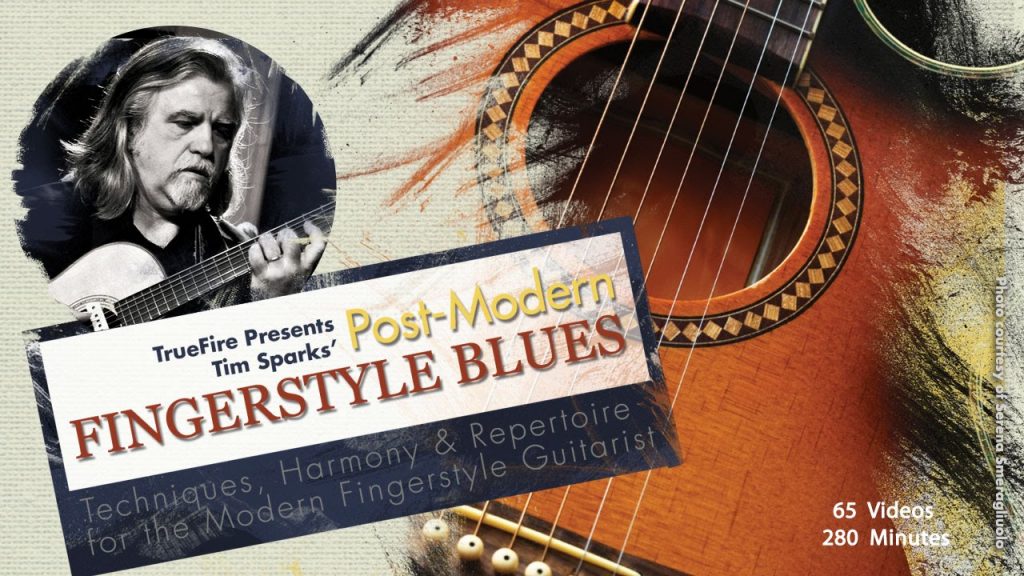

Discography
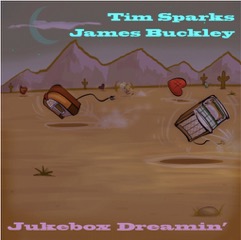
TIM SPARKS & JAMES BUCKLEY
Jukebox Dreamin ‘ (Acoustic Music Records)
WIn the jukebox Roy Black can stand next to the Stones. In Tim Sparks’ dream collection of today, you will find the most wonderful of all the enigmatic and dreamlike Beatles beauties, ‘Strawberry Fields Forever’, followed directly with Merle Hagard (‘Mama Tried’). But wait – this is no x-any other fingerstyle album. On the one hand, the Ameri- can has brought double bassist James Buckley on board and, on the other hand, has taken off his magnificent Charles Hoffman custom steel string in such a way that he is sounding towards an archtop with a floating pickup. In this surprising tonality one may not immediately recognize the opener ‘Homeward Bound’. But that’s also because Sparks so cleverly reharmonizes the catchy tracks, giving them a touch of jazz without losing their true nature. And this process, in turn, provides the deep joy that this work ultimately conveys: Everything receives musical added value; the longer you listen to the album, the more you become aware of the breathtaking guitarist sovereignty in these seemingly casually downplayed arrangements. It also becomes clear why James Buckley is here: his flexible bass groove allows Tim Sparks to enjoy the wonderful sin- gle-note improvisations that also put the old finger picker further into jazz than anyone would ever have expected.
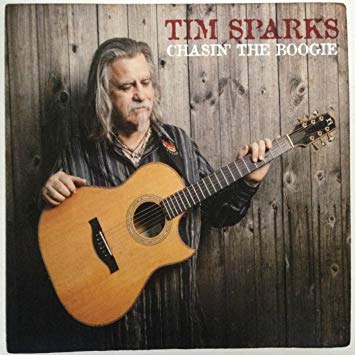
Chasin' The Boogie
Put simply, Chasin the Boogie is guitar music at its best. Even on songs that you thought you knew, you’ll find yourself hitting the repeat button to make sure that what you just heard really happened. Whether you’re already a fan of solo guitar music or not, give Chasin the Boogie a spin and allow yourself to be taken along!
Reviews
Ever since bursting on the scene with his 1993 release »» The Nutcracker Suite, Tim Sparks has captivated guitar fans with some of the finest fingerstyle guitar playing around. An artist who can be difficult to categorize, Sparks albums and
live performances have featured classical, blues, jazz, folk, klezmer, and other styles, and yet they all have a common thread that makes them immediately identifiable. Clearly, for Sparks the music itself is more important than the genre it may have originated in, and Chasin the Boogie continues this approach. Whether completely re-imagining the Beatles Blackbird, creating a complex guitar arrangement of Joni Mitchell s Both Sides Now, playing the folk standards Wayfaring Stranger and I ll Fly Away, or getting gritty on the Mississippi Blues, Sparks creates solo steel-string guitar magic like only he can. Put simply, Chasin the
Boogie is guitar music at its best. Even on songs that you thought you knew, you ll find yourself hitting the repeat button to make sure that what you just heard really happened. Whether you re already a fan of solo guitar music or not, give Chasin the Boogie a spin and allow yourself to be taken along! –Teja Gerken, Peg Head Nation Chasin’ the Boogie is the tenth solo guitar album from local fingerstyle magician Tim Sparks. Once part of the vintage jazz outfit Rio Nido, Sparks subsequently delved into a broad swath of global music where few guitarists ventured before, including Balkans dances and Russian symphonies. Inspired by visits to his native North Carolina, Boogie is a collection of blues, gospel and pop standards, all with original arrangements and erudite historical references. Jazz sneaks into the spiritual standar I’ll Fly Away and Joni Mitchell’s Both Sides Now, for instance. An unusual key and tricky extrapolations delightfully twist the melody of the Beatles’ Blackbird. The Mississippi Blues is an intricate, rollicking joy ride, while the original Blue La La recalls eccentric New Orleans guitarist Snooks Eaglin. –Rick Mason, City Pages MN
Listen on Spotify https://open.spotify.com/album/6zz1HSWJ0QEm1ftzFSIBbW
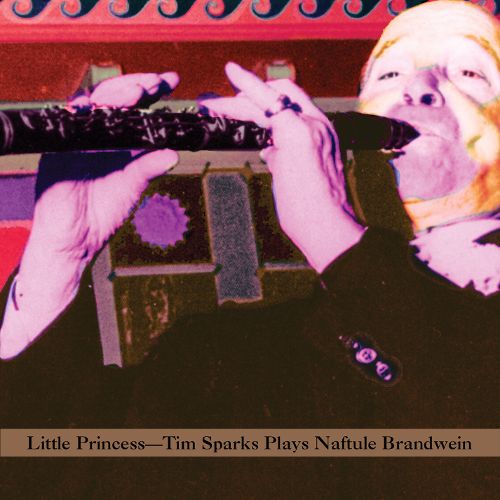
Little Princess
Acoustic fingerstyle guitarist Tim Sparks has always set himself apart from the pack of his peers. Rather than rely strictly on playing blues or age-old folk and bluegrass tunes, or even following in the well-worn paths of John Fahey, Peter Lang, and Robbie Basho, Sparks has followed his muse down into the corridors of musical and cultural history. While no one can dent the influence of great jazzmen on his playing, one can hear the sounds of saxophonists, pianists, and of course the sounds of Yiddish folk and popular music, klezmer among them. In 2000, Sparks recorded Tanz, his third album for John Zorn‘s Tzadik imprint. It was a departure from his previous two in that it wasn’t a solo but a trio record. His partners on that musical journey were veteran bassist Greg Cohen and master percussionist Cyro Baptista. The set was brilliant and innovative, creating an entirely new perspective on Jewish music from the beginning of the 20th century to the commencement of the 21st. It contained a slew of traditional songs and also featured four tunes by the original klezmer legend, clarinetist and composer Naftule Brandwein. The same trio reconvened in 2002 for At the Rebbe’s Table, for a similar program that also contained tunes by Brandwein. Seven long years later, this trio once more reunites to perform an entire program of his work, and the results are quite astonishing.
For starters, here are the group members playing together after all this time and being more emotionally and musically attuned to one another than ever before. Next there is Sparks‘ own playing, which was always jaw-dropping, but has risen to a such a level that now he’s virtually in a league of his own. The way he combines so many different musical techniques and genres into his own idiosyncratic fingerstyle picking is not only technically remarkable, it’s savvy and wildly creative at the same time. Check the way he weaves flamenco styles into Brandwein‘s take on a traditional Yiddish folk melody in “Der Yid in Jerusalem.” Here, Baptista accents the Latin rhythms on claves and hand drums, and Sparks weaves Charlie Christian, Tal Farlow, and elements of Carlos Montoya into his playing of Brandwein‘s melody. The sprightly “Oh Daddy, That’s Good” weaves some gorgeous modal and overtone playing into the melody, stretching the harmony to — but never over — the breaking point. The interplay between Cohen and Baptista is so delightfully sophisticated that all the listener can do is smile. The use of harmonics in “A Few Bowls Terkish” (sic) draws from the influence of guitarist Bert Jansch to further a series of modal interludes that flow into some gorgeous jazz playing on the changes by the composer. Highlighting these tracks doesn’t mean that they are the album’s finest moments at all. Virtually every one of these ten cuts is an example of how intuitive, sophisticated, and creative Sparks is, not only as a player and interpreter, but as an arranger so canny that the listener would think all of these songs were written in the current era. That said, Sparks never, ever compromises the sophistication or humor Brandwein put into his compositions. He reveres them deeply, and strives to make them live on as part of a lineage that has no use for musty audio museums, but would rather portray the music as a living, breathing, sassy, sexy thing that swaggers rather than stands still in the passage of time. Brilliant work and the best Sparks record to date.
Tim Sparks plays Little Princess https://www.youtube.com/watch?v=ya7g9g7_fPM
Listen on Spotify https://open.spotify.com/album/0yFm5FxFGL0mXZ3Gc5oaqo
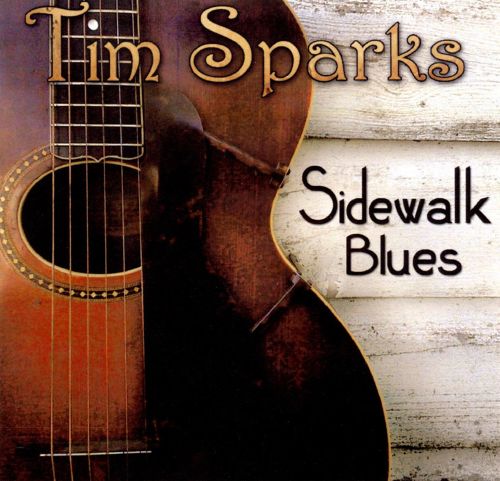
Sidewalk Blues
Recorded over the last several years in various locations, Tim Sparks’s “Sidewalk Blues” is a fingerpicking homage to early 20th Century American Roots music. Sparks is a guitarist’s guitarist, an innovator and student of many styles of music. Among those styles are American roots music, European and Mediterranean folk music, and classical. “Sidewalk Blues” is a return to Sparks’s own roots and the music that initially inspired him. A meticulous arranger and consummate performer, Sparks plows, punctuates, and pulses his way through a well-chosen batch of ragtime, jazz, country blues, and gospel with an individual flair and spirit to burn. One of the nice things about the album is the lack of aural homogeneity. The guitars often sound very different on different tracks, almost as if you’re listening to a compilation of incredible guitarists. No doubt this is due to the nature of the way the album was recorded, as mentioned above, but Sparks also utilizes a variety of guitars on the album. About half the tracks were cut on a Podium Custom Collings OM style Country Cutaway. Several tracks were recorded on a 1917 Gibson L-3. Also played were a Hoffman Custom OM Style Cutaway and a Lakewood Custom Concert Cutaway. Simply stated, Sparks is a master of the instrument. His arrangements and performances of Louis Armstrong, Fats Waller, Jelly Roll Morton, and Bix Beiderbecke compositions are flawless, at times playful, and always soulful. As stated in the liner notes, these seventeen tracks evoke the sounds, sights, and smells of “New Orleans sportin’ houses, Harlem speakeasies… and a world of tobacco fields, fire-breathing itinerant preachers, moonshine on Saturday night, and rapturous Gospel singing on Sunday morning.” A must have for fans of Tim Sparks and for anyone who loves fingerstyle guitar playing.
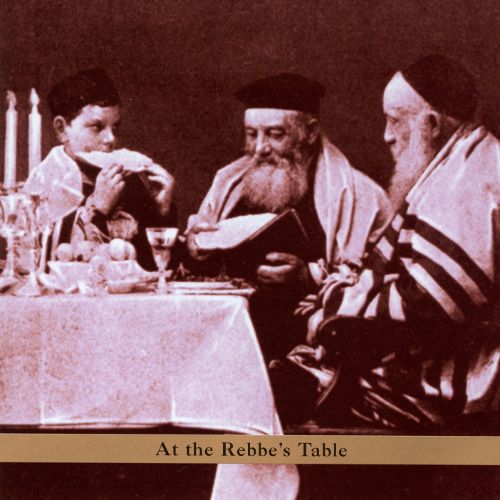
At The Rebbe's Table
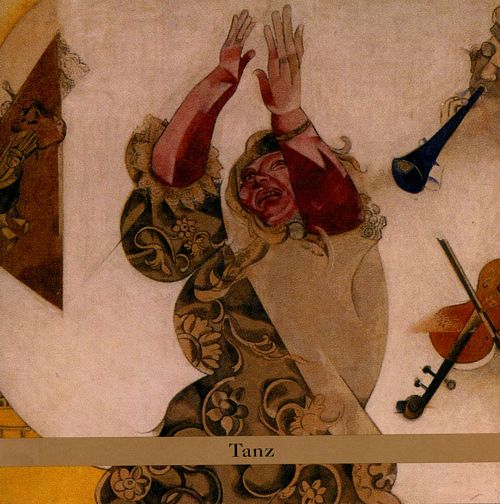
Tanz
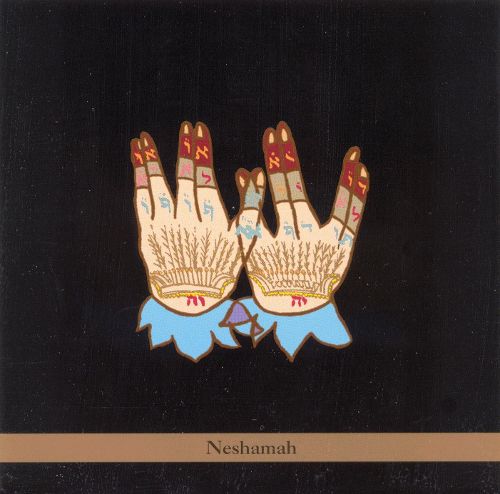
Neshama
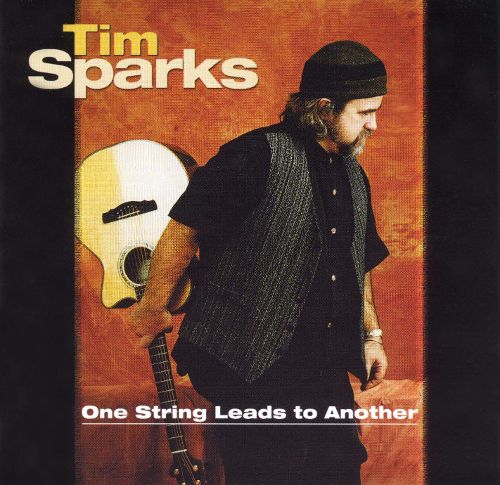
One String Leads to Another
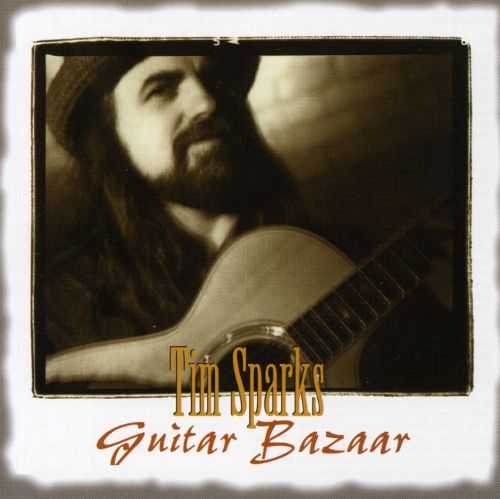
Guitar Bazar
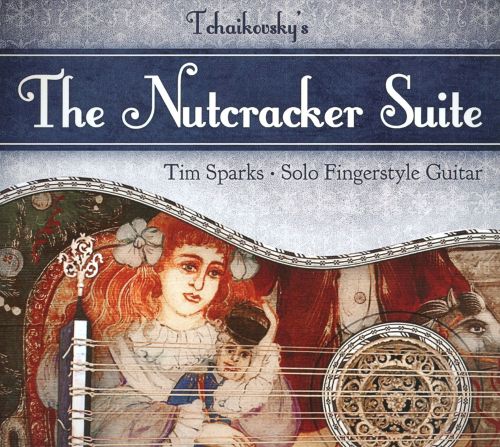
The Nutcracker Suite
Resources
More music, albums and media
- Minor 7th review of Jukebox Dreamin’
- Tim Sparks Bio
- Tim Sparks YouTube
- Truefire Guitar Lessons
